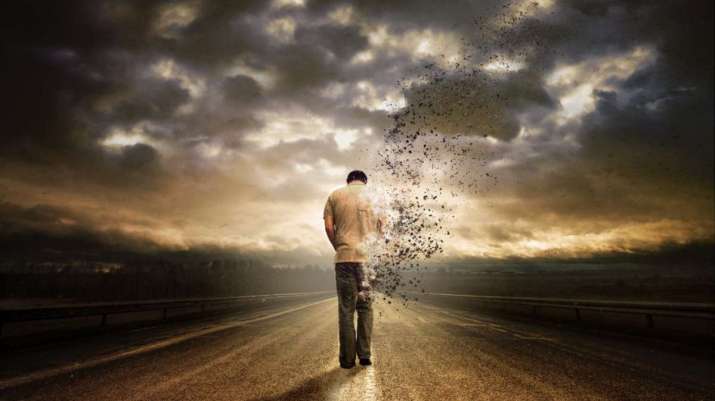FEATURES|THEMES|Commentary
Buddhistdoor View: Making Peace with the Restless Heart
 From keuniversity.org
From keuniversity.orgDo you long for an event, context, or experience that cannot ever be recaptured? Have you ever felt the desire for something that has not even happened yet, and cannot be defined in specific terms?
There is a beautiful word in Portuguese that invokes a feeling more specific than nostalgia. Saudade denotes a feeling that perhaps is best expressed as “the expression of absence,” or the “longing for someone or something that you remember fondly but know you can never experience again. It is an awareness of the absence of a person or thing. . . . Saudade is the moment you realize how important people are in your life and the moments you have taken for granted.” (HuffPost)
Yet there are two kinds of restless hearts and they mirror each other. The first is the restless heart of saudade. Its polar opposite is perhaps the restless heart that “can’t sit still,” which is experienced by people who “are eternally focused on the next place, the next move, the next destination that will entice and compel them once they’ve tired of where they are. . . . The people who seldom give the present a fighting chance because the future is so much more alluring. . . . Those who find what could be eternally more compelling than what is.” (Thought Catalog)
Saudade is, in other words, the condition of a restless heart that is experiencing, to appropriate Heidegger, a subjective “thrownness” (geworfenheit; the description of our existences as being “thrown” into the world as finite beings), an intensely personal connection between past and present. The second kind of restlessness is perhaps best expressed as some kind of “anticipative” nostalgia, an attachment to how things could be, to who one could be. . . . In both cases we see attachment at work, but pulled in opposite temporal directions—one toward the past, the other toward the future.
Our thrownness as individual beings is tied to our experience of the restless heart, whether as saudade or as futurism, because tied up in our thrownness are a slew of things we never had a say in or a choice. This is our karma, from a Buddhist perspective. And when we are limited by what we did not choose, our thrownness in the world, we experience a degree of powerlessness, a lack of individual agency and choice.
The context we are born into—with all its accompanying family ties, social conventions, and so on—sets into motion the choices we make in life. Yet these choices are by their very nature limited in all kinds of ways: by the moves we make, by the questions we ask about ourselves, by the possible paths we see, by the very nature of time itself, and the fact that everything is impermanent. Is it any wonder that the experience of these limitations lays the foundations for a restless heart, pulled in both the direction of what has passed and that of what has not even happened?
When we inevitably cannot control this powerlessness, failure to come to terms with it leads to a restless heart. However, we are only human and cannot simply “turn off” a restless heart. We also have little control over its timing and scope (it can affect our experience of our social circle, workplace, home, and so on). Most frustratingly, perhaps, we also have little to no control over its intensity. There are countless examples that can be pulled from everyday life, or even over the course of decades. The restless heart can be agonizingly intense for a few weeks, spurring us on to do something dramatic with ourselves, or it can work like a slow burn over years and decades, bubbling to the surface every now and then, reminding us of a lost childhood experience, or a time when this or that occurred and made us feel a certain way or hope for something else. In both cases, we are speaking of desire unfulfillable (saudade) and undefined (“anticipativeness”).
There are no easy antidotes or simple prescriptions that can just remove these attachments of past and future. They are powerful forces. Not even time can smooth over these feelings and, indeed, they might actually increase with the passage of the years. The intellectual recognition of impermanence only goes so far: we have to do our best to see our own lives as a kind of quantum flux, an amalgamation of aggregates that is in itself an event, an event that will inevitably end with death. We are not a “self,” but an event happening to others as much as others are events happening to us.
We are in flux and as such “impermanently happening” all the time. In this sense, our hearts will always be restless. The question is to what degree we feel restless, and whether it impacts negatively on our overall emotional wellbeing. If we can be open to change without forcing it, balancing intuition of what we need and want with rational thought, then we can go some way to mitigating negative effects while acknowledging that, yes . . .
Some things are worth reminiscing about . . .
And some things are worth dreaming of.
See more
Saudade: the presence of absence (HuffPost)
To The People Who Always Want To Be Somewhere Else (Thought Catalog)
Related features from Buddhistdoor Global
Buddhistdoor View: Loneliness as a Spiritual Concern and Ailment
The Fiction of the Self: Ruth Ozeki
Cultivating Wellbeing in the Heart of the City: An Interview with Tsoknyi Rinpoche
Happiness, Expectations, and Learning to be Losers: An Interview with Ajahn Brahm














